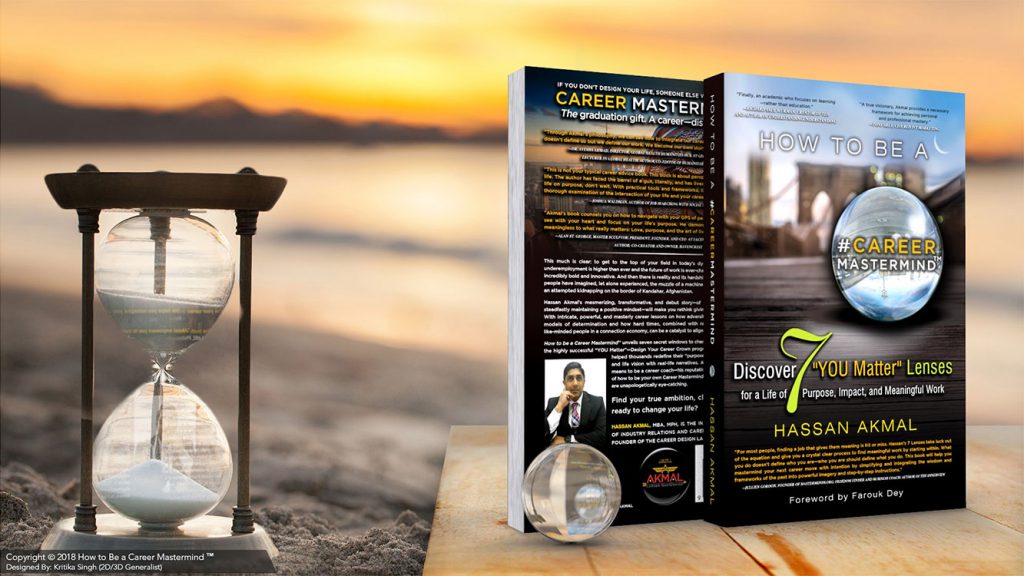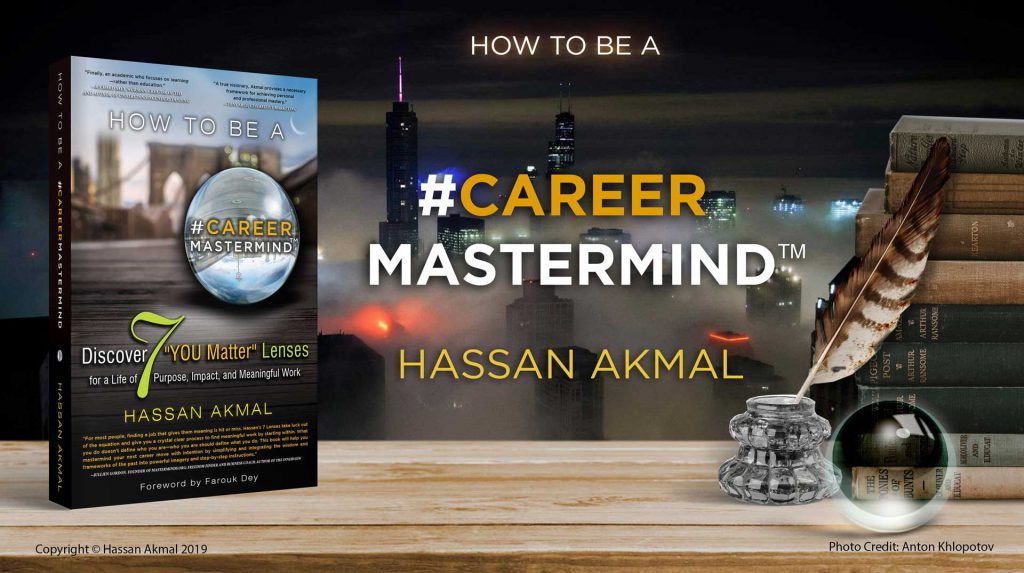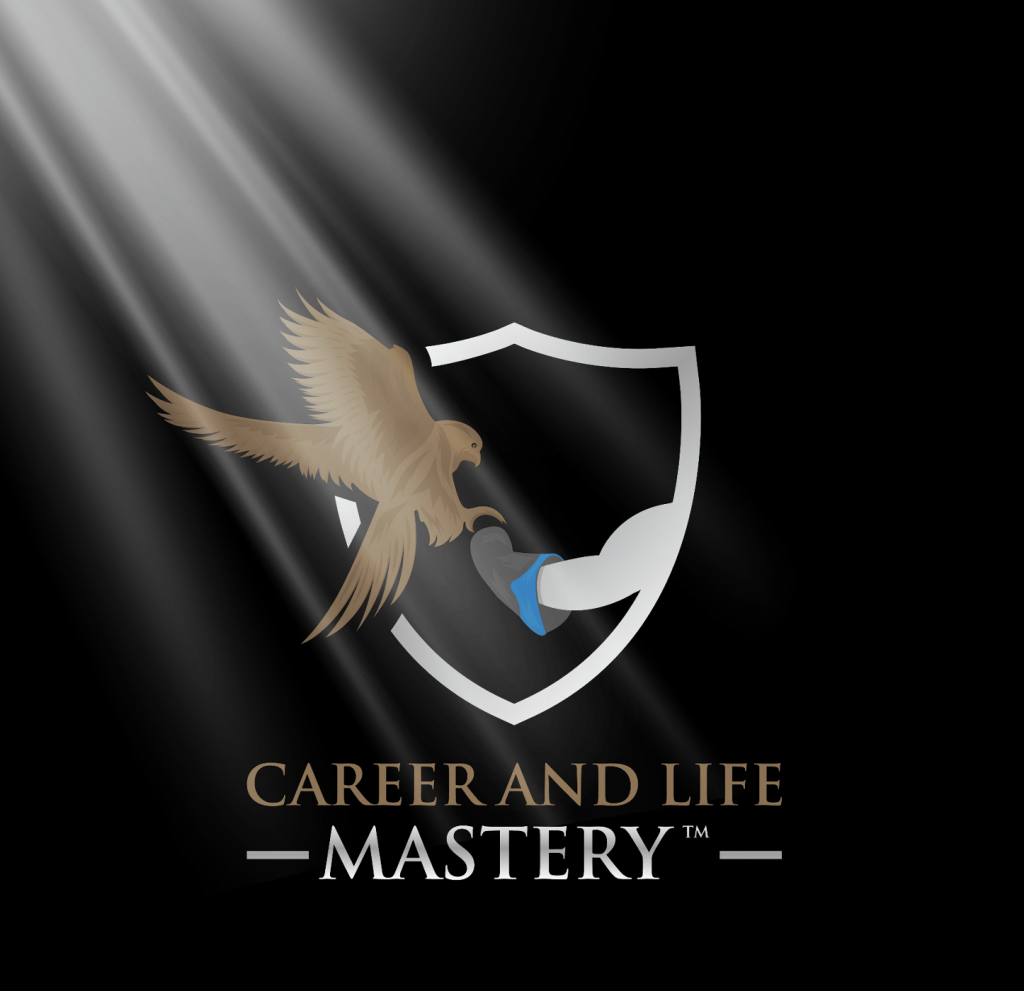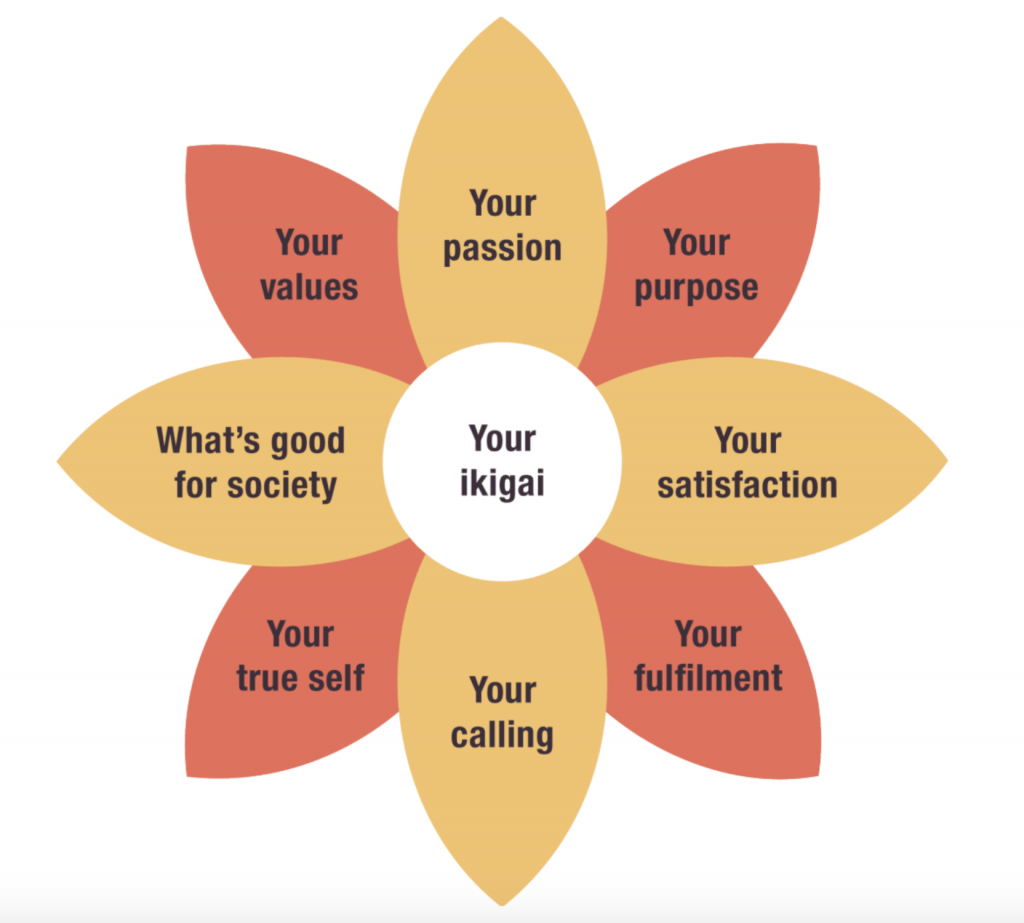The Future of Work
The Future of Meaningful Work
Every New Year’s Eve, at exactly 11:59pm, the Times Square Ball descends 141 feet, in 60 seconds— along a specially designed flagpole.
Just like watching the sand of an hour glass slowly trickle down, one second at a time, one grain at a time, New Yorkers and countless tourists from all over the world would gaze at the lighted crystal-paneled ball as if looking into the future. And they are mesmerized.
Perspectives change over time, just like careers. They evolve, and each year, we evolve.
In 1920, a 400-pound wrought iron ball replaced the original ball made of wood. In 1955, an aluminum ball, weighing only 150 pounds, replaced the iron one. In the 1980s, new neon lights, rhinestones, and strobes were added. The ball went through another revision in 2000 and then in 2007, it became the magnificent work of art the world sees now; a crystal ball made up of almost 3000 crystal triangles illuminated by over 30,000 LED lights. In each triangle lives a story of heartbreak and hope, chased away by the lights of a new horizon.
Beneath that resplendent ball, we make our New Year’s resolutions and promises to loved ones, but above all, to ourselves. It’s where some dreams end, and others begin.
There, below, close by, I recall a magical place, where the manifestations of these resolutions are realized. Students and alumni loved this place. There, they entered with hopes and dreams, with embers of fear, but left with aspirations of self-reinvention. It was called the Career Design Lab. A sanctuary of self-reflection which now lies empty.
As the former Inaugural Executive Director of Industry Relations and Career Strategies for Columbia University’s Career Design Lab, I recall striving to build a new future for students and graduates. We planted seeds in the hearts of change agents, in the heart of New York City. Outside its tall doors—Times Square, once full of energy and passion, now lies vacant and empty. Your voice now echoes alone through its distance, where once the power of voices would fill the sky with promise. But now, all career center doors across the United States are closed.
Career disruption and impact
Career disruption preceded the pandemic, and now it has magnified and accelerated the change we are all trying to get ahead of. The future of work is uncertain. In our current economic landscape, we see people questioning their careers more often in search of meaningful work. Prior to the lockdown, for the first time ever, more people voluntarily were leaving their jobs, than were being laid off. They were also seeking purpose-driven organizations that foster engagement, commitment, and the motivation to make an impact. Is the secret ingredient of extraordinary companies, purpose? This aspect will not change and only become more important with time.
Now, however, unemployment has reached 14.7% in the United States, the worst since the Depression era. Returning to “normal” is not an option, it will be a new normal. Things will never be the same, and careers will also never be the same.
In my book, How to be a Career Mastermind: 7 “YOU Matter” Lenses for a Life of Purpose, Impact, and Meaningful Work, I redefine the word “career.” There are thousands of careers, both traditional and non-traditional, not to mention the wealth of niches. Many of them require extensive education and training. Many others require little to no experience. And now, with more project-based work, we are seeing new career trajectories we never envisioned in the past.
The future of meaningful work, now and post-pandemic, is about defining and developing “the new career”—mastering diverse occupations with the new success skills (soft skills) of the future, positions that haven’t even been created yet, among new industries – roles that can’t be reduced to a single title or trajectory— they surrender only to genuine merit.


What are some of these success skills of the future? Well, creativity is one of them. According to the World Economic Forum, creativity was ranked number ten in 2015, but now, in 2020, it has risen to number three. Along with emotional intelligence, which wasn’t even listed in 2015, cognitive skills dominate. But with the pandemic, this list needs to be reimagined as well, as COVID-19 has shined a spotlight on digital skills and digital literacy.

Career and Life Design
My new role is the Executive Director of the Career Center at UCLA. I no longer call it a “career center” or “career services.” What we do extends beyond that, it’s really career and life design. We do much more than career services. As careers have changed, and like many others, my position is a career with an expiration date. Longevity at an organization is no longer 20-30 years. Careers are also no longer linear. We each have our own expiration date and must not just keep up with new trends, but stay above them. But, this is not a story about my work at Columbia University or at UCLA. If you take anything away from this, take this:
- This is a story about being a storyteller with no end in sight.
- This is about not just aspiring to just be a storyteller, but to be a story-maker and a story-changer.
- Take command of your career before someone else does.
- Write your story, and don’t be shy!
What do you want to be when you grow up?
We all get asked the question, what do you want to be when you grow up? Doctor, lawyer, engineer? And today, how many of us are where we imagined we would be 5, 10, or 20 years ago? Our youth will have at least 15 careers over their lifetime. Now, many will have multiple careers at the same time. With a new gig economy, people will have multiple projects at the same time too.
What hasn’t changed is the need to be emotionally connected to your work. Research from Gallup showed that in our pre-pandemic global work force, only 13% were happy with their jobs. Imagine how each of those felt who were in the 87%? And when we looked at those that were happy and study why, it was because that 13 percent crafted their way forward.
My little nephew Ziya has embraced Zoom and technology like it was his long lost twin. Yes, you guessed it, he is in this happy category. He is creating, what I call, his “Career Bucket List, the name of my next book.” If he can do it, you can too. He is designing his life and already built his own video game and app! It’s called, “YouMePlay”.
What about the Class of 2020?
Students and recent graduates should not lose confidence. With difficulty comes opportunities—new industries and the ability to double down on areas that can and will elevate your brand. For example, while some industries are more affected than others, some are still thriving. It’s a great time to research new industries. In fact, 73% of college seniors are still hunting for a full-time job [Source: Trends and Insights: COVID-19 Higher Ed Recruitment Trends, Handshake, April 7, 2020]. Handshake, our repository for career opportunities, still has thousands of jobs that are current and not yet filled. This is a good time for career-seekers to update career profiles, research employers and/or network online.
Now more than ever, students are quickly realizing that their self-awareness, brand, and digital footprint—the content that they are putting out there for people to read, watch and follow—will open doors.
Not only that, but without the ability to effectively network online with like-minded groups and individuals, it will hinder their search—whereas in the past, you had the ability to attend a career fair or networking event in-person.
Additionally, they still need the critical career readiness and transferable skill sets necessary to effectively prepare them for the competitive nature of the job search. This hasn’t changed, however, that list has expanded. For example, the ability for an individual to demonstrate effective adaptability to new and emerging technologies has increased. The importance of self-awareness, hustle, patience, and global cultural fluency is increasing too.
Students and graduates are joining people, not organizations. However, the relationship-building dynamics have changed, but relationships are still key and matter—plus they take time. Thus, we are encouraging students to first focus on revamping their online presence before they begin the process of organic networking, informational interviews, and aligning mentors—as this will increase their ability for it to be effective.
Who’s still hiring?
The impact this recession is having cuts across all industries, although some have been affected more than others. Some fields are experiencing reductions, other areas remain steady. For example, Pharma and Med Devices, Healthcare and Services, and Nonprofits are still hiring and are the least impacted. Whereas, Hospitality, Food, Beverage, and CPG, and Arts and Entertainment have been hit the hardest.
Here are 500 companies still hiring. According to a recent poll by the National Association of Colleges and Employers (NACE), approximately 35 percent of employers are still recruiting internships for the summer. Over half are still planning to recruit for full-time roles and using virtual recruiting techniques. While many of UCLA’s employers are still in fact recruiting (over 75 percent), we are collectively figuring out how to best partner and augment recruiting via social media. We are also refocusing on mentorship in partnership with Alumni Affairs by fully leveraging our UCLA ONE platform powered by Graduway.
Many employers are exploring innovative ways to provide new recruits with great virtual experiences during their first few weeks on the job. Others, however—a minority (17 percent), are pushing their start dates back altogether or suspending hiring until they can recruit in-person again in the fall.
Digital and organic networking
LinkedIn is a great place to align informational interviews, so we are encouraging students to examine career trajectories and discover individuals who have already demonstrated success in the roles they aspire towards. In a sense, this is the short-cut they need and is highly underrated. Don’t ask for a job, pick their brain. This is about collaboration. Be grateful for their time, and don’t go in thinking you have nothing to offer them.
Ask yourself: “What are you doing to stand out from the crowd?” Nothing? Wrong answer. Look, try new things. I did. Many years ago, I predicted that traditional resumes were going to be a thing of the past. I was sure of it. And I knew video was going to be huge with day trading attention. In fact, there was no doubt in my mind that every single one of us would have their own personal media company. Yes, you guessed it, by using that little remote control we call our “cell phone.” So one day I woke up and said, “I am going to film my own video resume!” And I did it, because I wanted people to see my vision. I was driven to succeed. Don’t believe me, here it is below.
The point is, you have a brand whether you like it or not. It’s already out there.
Do something about it and take calculated risks to take it to the next level. Your digital identity is likely the first thing a potential employer will see.
That gap on your resume
Employers are not going to judge you if you are unemployed during a pandemic, however, they are going to focus on what you did during this time. What they want to see is that you are productive and taking your career development seriously. There are a plethora of ways to do this, aside from taking online courses and self-education. For example, there are many innovative programs emerging such as virtual internships and micro-internships. These are much more short-term, paid, and professional opportunities that typically have anywhere from 5-40 hours of work and are throughout the year. They are much more specific, project-based, and those participating would receive a fixed fee from $15-$25 per hour for a one week or one month project. These opportunities can help you narrow the gap without an official job or traditional internship.
The job search during COVID-19 can be daunting. The more you know, the better you will feel when it comes to preparing next steps. But remember, life is a living laboratory. Use all of your experiences (virtual or not) and mentors as sounding boards. You also need to do your research on new industries and how the pandemic is impacting the job search. A great place to start is by reading recent trends and insights. Here is one I recommend that was recently published by Handshake entitled: “The Job Search During COVID-19. What are college students looking for now?” This should help you get started.
Pivot, then reinvent yourself
Do not rush this. Pivot. Take a moment to reflect. I began my new role on February 24, 2020, the same day as Kobe Bryant’s memorial. I was hired to lead an aggressive and ambitious reimagination and reinvention of the UCLA Career Center after leading two reimaginations, back to back, over the course of 6 years at Loyola University Chicago and Columbia University. I, too, must stop and pivot. Maybe, rest, too.
Understandably, with unemployment increasing past the 7.1 million mark in a 0.9% increase month-over-month (the largest we have seen in 45 years), there is a greater need for support at this time. There are more actively seeking students. The support students are looking for is different than the past. They are looking for who is still hiring and what industries to get into. More students are learning to code and leaning towards artificial intelligence and machine learning. They are not looking for traditional service delivery, they want new content, engagement, and transformative experiences. They are also looking to us to point them in the right direction on where and how they should be looking for meaningful work because of the drastic change the world is seeing.
Career centers must ask themselves: “What will it take to be the new breed of career professionals?” We must strive to be more integrated, inclusive, and innovative.
We must also ensure we are meeting the new needs and aspirations of this ambitious generation.
This is not just about your superpower
I have spent over a decade consulting and providing counsel to thousands of people from all over the world. Coming back full circle, what I found is that this is not about us, this is about our students and alumni. Their success is our success, not the other way around. This is not just about finding your superpower. That is important, yes, but it’s about building the next generation of leaders. This is about a new kind of leadership. To build a legacy, you must give back and create a lasting impact.
We all need a purpose greater than ourselves.
It’s not just foresight, but insight. It’s time to innerview ourselves, not interview ourselves or one another.
The future of work is not about external factors, it’s about intrinsic values and meaning. It’s about purpose and discovering that purpose through difficult times that test you and your limits. It’s about self-mastery.
Rumi, my favorite poet, says it best:
“What you seek is seeking you.” —Rumi

Where do we start or where do I pivot? Start with your Career and Life Vision. This should be a panoramic vision, combining what you are passionate about and what the world needs. Once you uncover this passion or passions, master them, then use those passions to solve the problems of other people.
Combining what you are good at, what the world needs, what you can get paid for, and what you love is called your “Ikigai.”

I leave you all with these words:
Every single one of you has a purpose. It’s developed from your passion. And when one is on point with that purpose, it can help change the world for the better.

Hassan Akmal is an American career and life mastery consultant, author, professor, thought leader, philanthropist, and former professional tennis player, model, and athlete ambassador to the United States. He is best known for his Amazon best-selling book—How to be a Career Mastermind™: Discover 7 “YOU Matter” Lenses for a Life of Purpose, Impact, and Meaningful Work and humanitarian work dedicated to Forced Migration and Health.
After over a decade as a senior leader in career services, he became the inaugural executive director of industry relations and career strategies at Columbia University in 2017 and founded the Career Design Lab. In 2018, he served on the National Association of Colleges and Employers (NACE) “Future of We” — Advisory Think Tank Committee and is a senior advisor to Graduway, a top 10 in Tech prominent start-up. In April 2019, he delivered the keynote address on the “Future of Career Services” at the Global Leaders’ Summit hosted by Graduway at UCLA. He also serves on several other prominent boards internationally.
In 2020, he became the executive director of career services at the University of California, Los Angeles.
